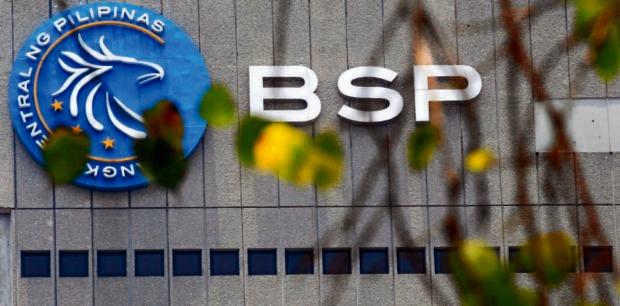
Bangko Sentral ng Pilipinas. (File photo / Philippine Daily Inquirer)
MANILA, Philippines–The effects of the central bank’s interest rate hikes of 2018 — meant to combat the sharpest spike in local prices in almost a decade — spilled over into the new year with the latest data showing a continued slowdown in loans granted by financial institutions.
In a press statement, the Bangko Sentral ng Pilipinas said outstanding loans of universal and commercial banks, net of their short term deposits with the regulator, grew at a slower rate of 15.3 percent in January from the 15.7 percent in December, according to preliminary data.
Similarly, the growth in bank lending inclusive of short term placements with the central bank, decelerated to 14.4 percent in January from 14.8 percent in the previous month. On a month-on-month seasonally-adjusted basis, commercial bank loans net and inclusive of these short term deposits with the central ban both increased by 0.9 percent.
Loans for production activities—which comprised 88.6 percent of banks’ aggregate loan portfolio, net of central bank placements — increased at a slower pace of 15.5 percent in January from 15.8 percent in the previous month.
According to the BSP, the growth in production loans was driven primarily by increased lending to the following sectors: wholesale and retail trade, repair of motor vehicles and motorcycles (16.5 percent); financial and insurance activities (26.5 percent); manufacturing (14.8 percent); real estate activities (10.7 percent); electricity, gas, steam and air conditioning supply (11.9 percent); and, construction (45.8 percent).
Bank lending to other sectors also increased during the month except that in professional, scientific and technical activities which contracted by 13.2 percent.
Similarly, the growth of loans for household consumption was lower in January at 12.7 percent relative to the 13.6-percent growth in December.
“The deceleration in credit card loans and motor vehicle loans as well as the contraction in salary-based general purpose consumption loans offset the expansion in other types of household loans during the month,” the regulator said.
Meanwhile, preliminary data show that domestic liquidity growth grew by 7.6 percent year-on-year to about P11.4 trillion in January 2019. This was slower than the 9.2-percent expansion in December 2018. On a month-on-month seasonally-adjusted basis, domestic liquidity — which indicated the amount of cash and near cash items circulating in the financial system — increased by 0.6 percent.
Demand for credit eased but remained the principal driver of money supply growth. Domestic claims grew by 12.2 percent in January from 14.6 percent in the previous month due mainly to the sustained growth in credit to the private sector.
“The BSP will continue to closely monitor domestic liquidity dynamics to ensure that overall monetary conditions remain in line with maintaining price and financial stability,” the central bank said. /jpv